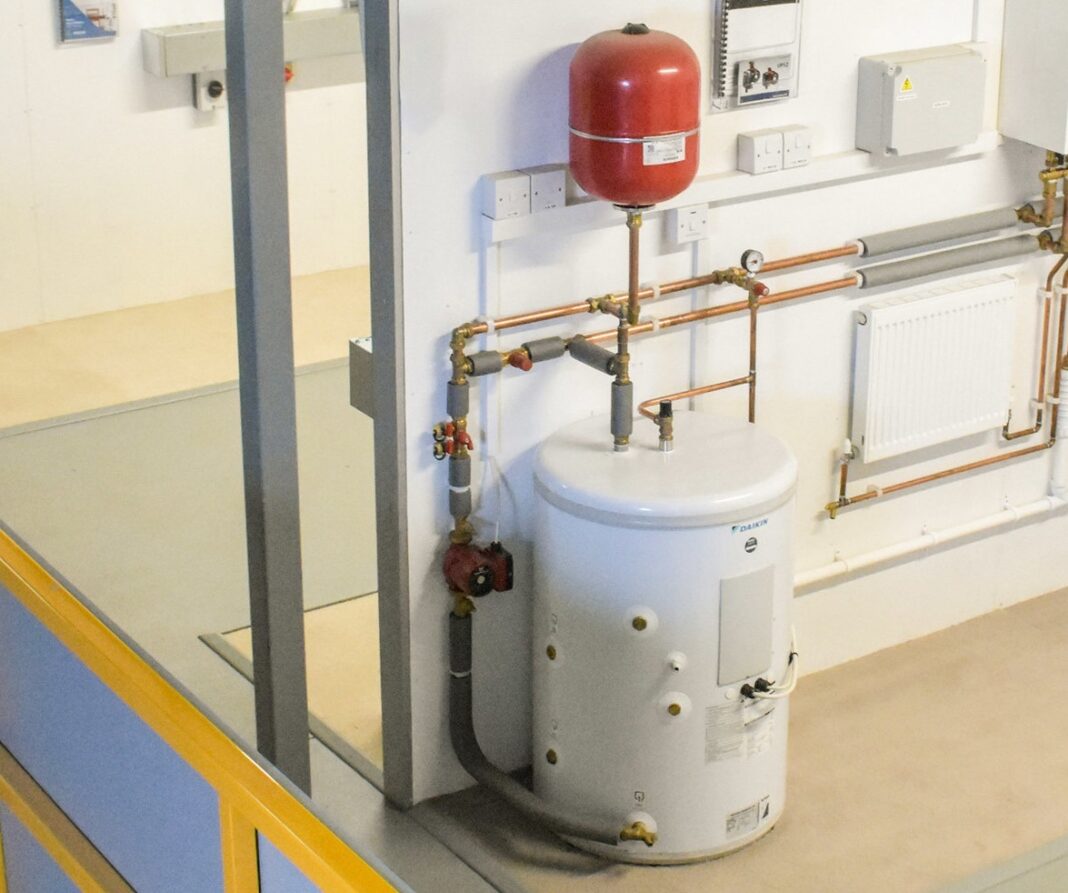An unvented hot water tank is a pressurized system that delivers hot water on demand and provides constant pressure to your taps and showers. Unlike traditional systems with cold water tanks, unvented storage tanks are connected directly to your main water supply. They offer many benefits, including constant hot water pressure, but it’s important to understand that regular maintenance is required to ensure safety and optimal performance.
How an Unvented Hot Water Tank Works
To appreciate the importance of maintenance, it helps to understand the basics. An unvented hot water tank typically contains:
- Expansion Tank: To compensate for the expansion of the water as it heats.
- Pressure Relief Valve: To release pressure when too much pressure builds up.
- Overheat Valve: To protect against overheating.
- Immersion Heater: To heat the water.
- Thermostat: To control the water temperature. Safety Device: To avoid possible dangers.
The Important Role of Routine Maintenance
Routine maintenance is important for several reasons:
- Safety: Unvented cylinders are pressurized, so safety is of utmost importance. Regular inspection can identify potential problems before they become a dangerous situation.
- Efficiency: Properly maintained cylinders operate efficiently, reducing energy consumption and saving you money.
- Long Life: Proper care will extend the life of your cylinder and avoid costly replacements.
- Warranty Verification: Most manufacturers require annual maintenance to keep warranties valid.
What to expect during service
A qualified technician will typically perform the following checks:
- Expansion vessel pressure: Ensure the correct pressure is present.
- Pressure relief and temperature limiting valves: Check their function.
- Cylinder inspection: Check for signs of corrosion or damage.
- Clean filters: Remove any buildup of sediment.
- Check immersion heaters: Check for proper function.
- Thermostat Settings: Ensures accurate temperature control.
- Security Device Test: Checks the functionality of security features.
Common Problems and Solutions
While regular maintenance can help prevent problems, some common problems include:
- No Hot Water: Often caused by a faulty thermostat, immersion heater, or sediment buildup.
- Noises: Odd noises could indicate a problem with the pump or expansion tank.
- Leaks: Worn seals or damaged components can cause leaks. A qualified technician can effectively diagnose and repair these issues.
SAFETY FIRST
Remember that an unvented hot water tank is a pressurized system and requires professional handling. Do not attempt to repair or modify the system yourself. If you notice any unusual signs, such as leaks or excessive noises, contact a qualified technician immediately.
Making regular maintenance a priority and correcting any issues right away will ensure the safe and efficient operation of your unvented hot water tank, providing you with years of reliable hot water.
Troubleshooting common problems with unvented hot water tanks
Although unvented hot water tanks are efficient, problems can occur. Common problems and possible solutions include:
- Lack of hot water Sediment buildup: Regular maintenance can help prevent this.
- Faulty thermostat: If your thermostat is not working properly, your water may not heat up.
- Faulty immersion heater: If your immersion heater is not working, you won’t have any hot water.
- Expansion tank problems: A faulty expansion tank can affect hot water production.
Noise Problems
- Pump Problems: Pump noises may indicate wear or blockage.
- Expansion Vessel Problems: If the expansion vessel is under pressure or over-pressurized it can cause noise.
- Water Flow Problems: Restrictions in the pipes can cause gurgling noises.
Leaks
- Plumbing Connections: Check to see if connections are loose or damaged.
- The Cylinder Itself: Corrosion or damage to the cylinder can cause leaks.
- Safety Valves: If the pressure relief valve or temperature relief valve is leaking it should be replaced.
Important Notes: Some basic checks can be carried out but if there are any major issues it is important to contact a qualified technician. Incorrectly trying to repair an unvented hot water tank can be dangerous.
Avoiding Problems Routine Maintenance: As already mentioned, annual maintenance is essential to avoid problems.
Insulation: Ensure your tank is properly insulated to maintain water temperature and reduce energy consumption.
Water Quality: Poor water quality can cause problems. Consider using a water softener if necessary.
Understanding these common issues and taking preventative measures will help ensure the life and efficiency of your ventless hot water tank.





